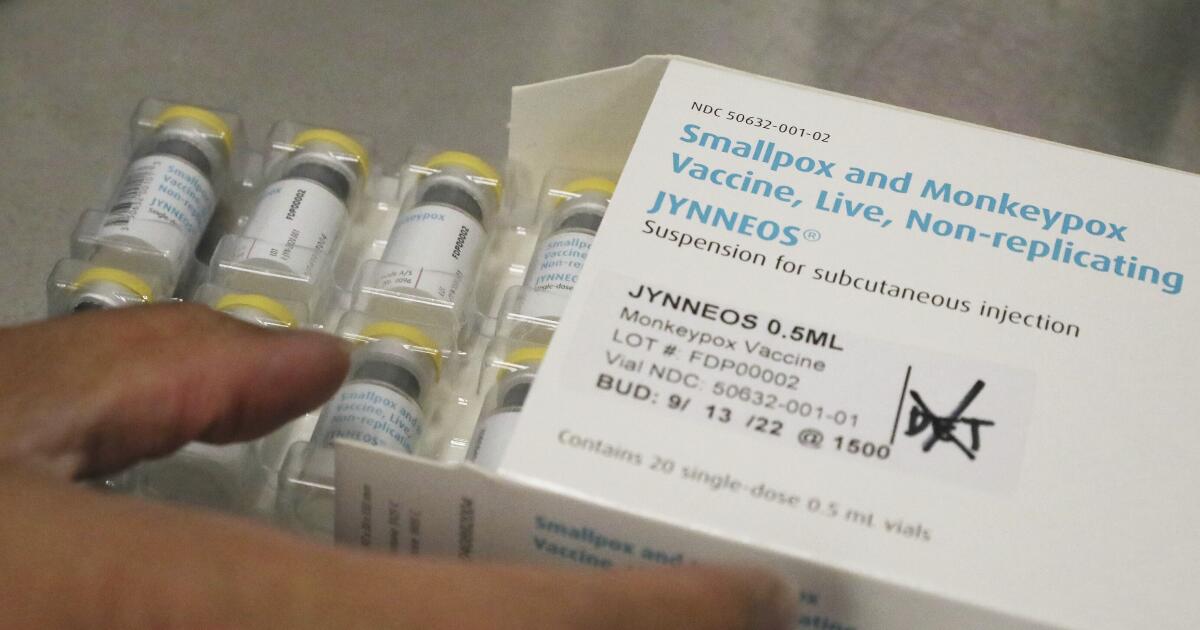
An uptick in local mpox cases has public health officials encouraging those at risk to get vaccinated and those who have already received two doses of the JYNNEOS vaccine not to assume they can’t still get sick.
According to a statement released by the county health department Thursday, 11 cases of the illness caused by the monkeypox virus have been reported in October. That’s a significant increase over the four cases that surfaced in September, but still far fewer than the 30 to 60 per week identified during the mpox outbreak that spread worldwide in the summer of 2022.
Similar increases have recently been reported in San Francisco and Los Angeles. Dr. David “Davey” Smith, head of the division of infectious diseases and global public health at UC San Diego, said the trend goes beyond California.
“All through California we’ve seen it for sure, but we can see upticks across the nation,” Smith said.
He also serves as the virologist for a trial that seeks to determine whether or not Tecovirimat, an antiviral medication designed to treat smallpox, is also effective against mpox.
Given that everyone who tests positive for this viral infection is asked to join the trial, Smith tends to see where new cases are popping up quickly after they occur.
One surprise, he said, has been that 1 out of every 5 new cases — 20 percent — have previously been vaccinated, a rate that is higher than is the case for smallpox.
“That’s weird, because this vaccine is super good for smallpox,” Smith said. “There must be just enough difference between smallpox and mpox that this vaccine, it is effective, just not as effective as we’d thought.”
A recently-published study estimates that the vaccine was 75 percent effective at preventing infection with one dose and 85 percent effective with two doses. However, the U.S. Centers for Disease Control and Prevention notes that the longevity of the protection that JYNNEOS provides against mpox “remains unknown.”
Those who are vaccinated, Smith cautioned, should not assume mpox invulnerability.
“Even if someone is vaccinated, if they get a lesion or a rash, they should go talk to their doctor and think about mpox as a possibility,” Smith said.
Mpox is spread through intimate contact between people. Though anyone can become infected, cases have largely been among those who self-identify as men and who list their sexual orientation as gay or bisexual.
In 2022, cases often popped up in communities after LGBTQ+ Pride events, and Smith said that has generally been the pattern in 2023 as well, though at a much-lower magnitude than was observed in 2022. To date, San Diego County has recorded 492 mpox cases since 2022 out of 5,905 reported in California, 31,010 nationwide and 91,328 worldwide.
The CDC, Smith said, is studying a handful of cases where a person recovered from mpox then became reinfected. All three detected so far, he added, have also had HIV.
“We’re wondering if there’s some sort of immune deficiency connection there,” Smith said.





